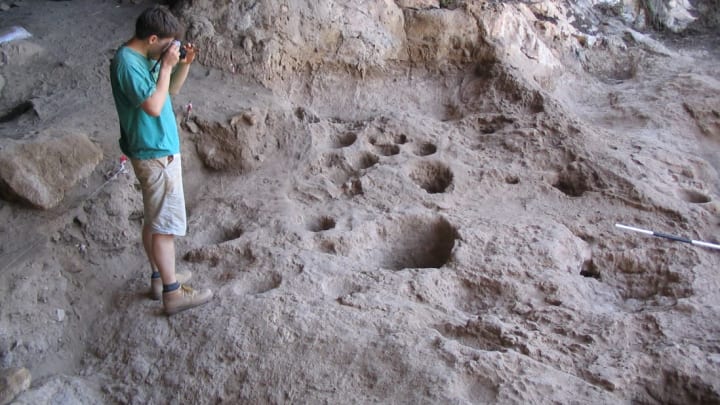People have been knocking back beers for 13,000 years, according to new archaeological findings out of the Middle East. As Science magazine reports, evidence of wheat- and barley-based beer was found inside stone mortars carved into the floor of a cave near Haifa, Israel.
The Raqefet Cave was used as a burial site by the Natufians, a group of semi-nomadic hunter-gatherers who were also responsible for the world’s oldest known bread, which was discovered in Jordan in July. These findings challenge previous evidence that traced the origin of beer back just 5000 years.
Beer was also previously believed to be merely a by-product of bread-making, but archaeologists say that isn’t necessarily the case. Instead, researchers believe beer may been served during ritual feasts “to venerate the dead and/or to enhance group cohesion among the living,” researchers wrote in their paper, published in the Journal of Archaeological Science: Reports.
Remarkably, the Stanford University researchers who made this discovery weren't even looking for evidence of alcohol. “We did not set out to find alcohol in the stone mortars, but just wanted to investigate what plant foods people may have consumed because very little data was available in the archaeological record,” Li Liu, a professor of Chinese archaeology at Stanford, said in a statement.
Researchers theorize that beer brewing may have inspired the Natufians to cultivate cereals in the region, but it’s not currently known whether beer or bread came first. The mortars dug into the cave floor were reportedly used for storing and pounding wheat and barley, as well as brewing beer.
The beverage wasn’t exactly what we know as beer today, though. According to the BBC, the prehistoric beer was “gruel-like” and similar to porridge. It was likely weaker than modern beer, too.
[h/t Science]
